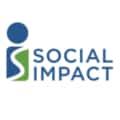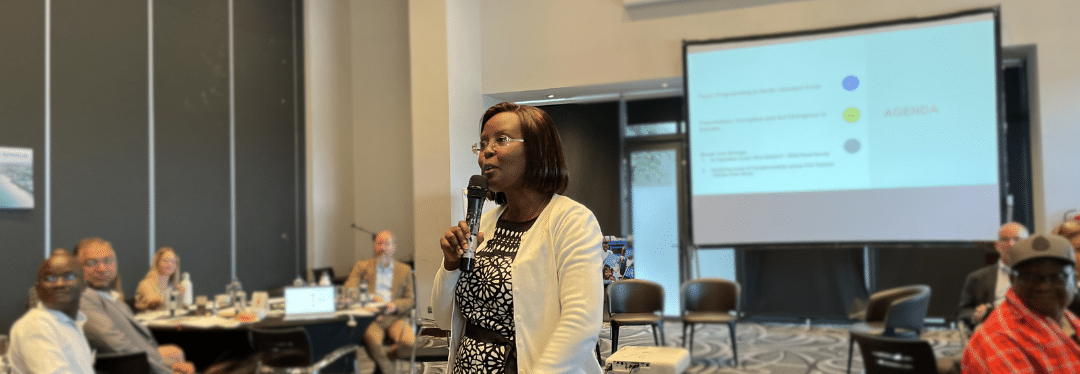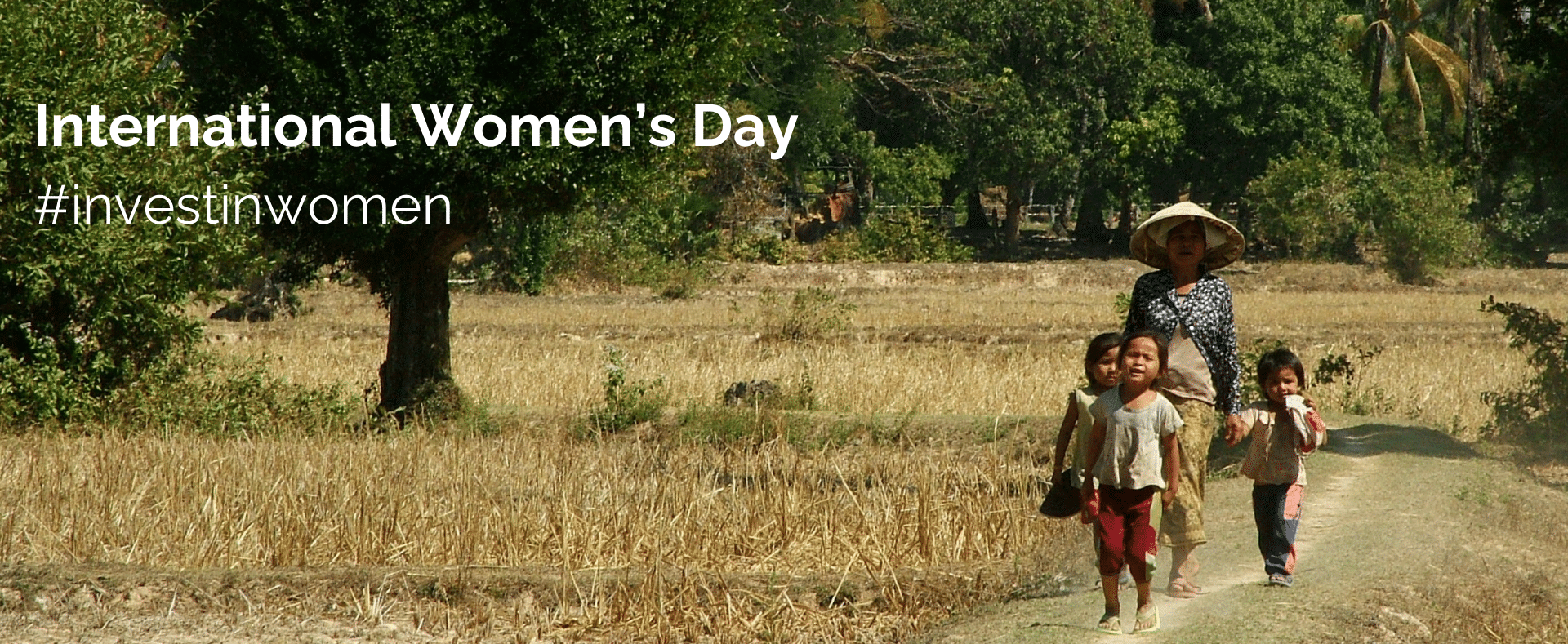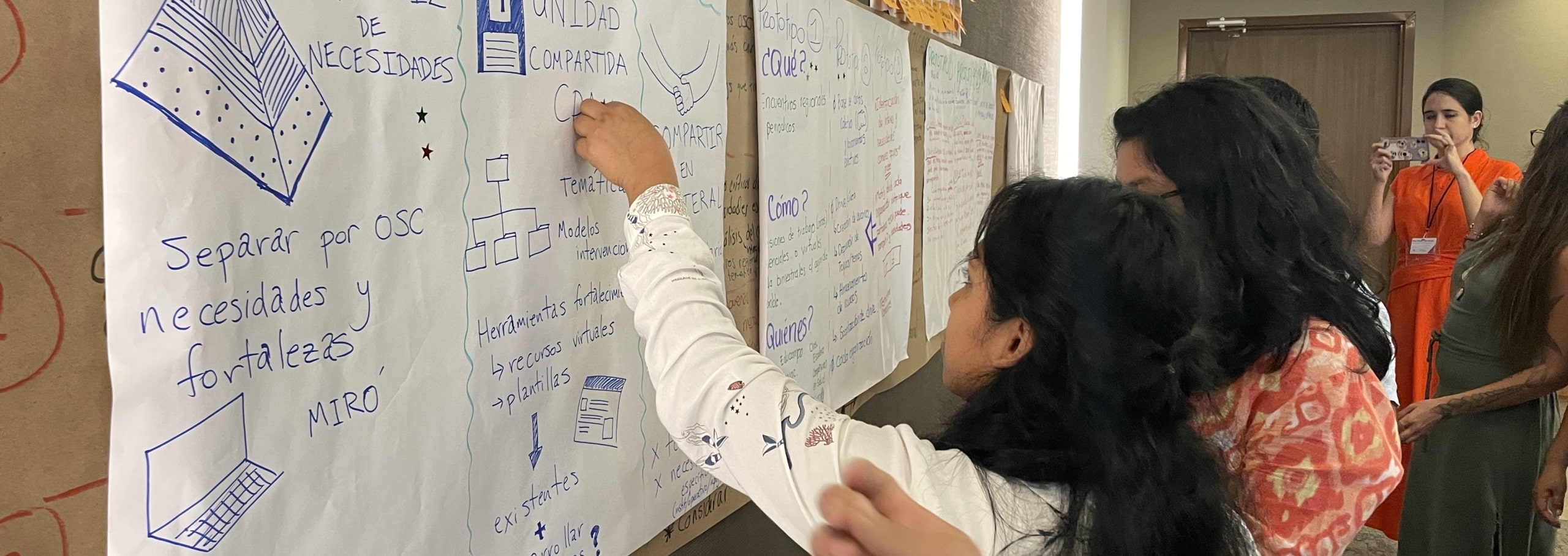We are pleased to announce the recipients of our annual Impact Awards.
- Ed Birgells and the SI Liberia team for Making the Most of Development Dollars in Liberia
- Andrew Carmona and Emily Gonzales for What’s Working to Improve Girls Education in Somalia
- Erica Holzaepfel, Catherine Villada, Kate Seibold for Improving Assistance to Vulnerable Migrants
Recognizing the impact of evaluation
The purpose of the Impact Awards is to answer the “why” and “so what” about our work. Above and beyond delivering high quality evaluations, monitoring support, and training, our mission is to advance development effectiveness. We aim to learn from, shape, and improve development programs and policies around the world.
Social Impact introduced the awards in 2016 to intentionally focus staff on the impact of their work. The awards (first, second, and third place) are given to Social Impact teams that provide the most compelling and evidence-based story about the impact of SI projects. To win, the stories must convey how the work is used by clients and partners and influences development work.
The 2018 winning stories in brief
1st Place: Making the Most of Development Dollars in Liberia
To rehabilitate the health sector in Liberia after the Ebola crisis, USAID/Liberia expanded its results-based financing program with the Ministry of Health (MOH). They hired Social Impact to independently monitor and evaluate the program.
With SI’s evaluation support, USAID and the MOH recognized that they were over-valuing certain deliverables. They re-costed the agreement to expand services within the existing $24 million-dollar limit—providing more health services to Liberians with the same amount of money in hand.
USAID implemented clear quality requirements with input from SI. SI teams travelled to clinics and centers and verified the reported outputs. Through these site visits, SI saw that when hospitals and health centers know they are being monitored and have a clear understanding of how exactly they will be monitored and judged, they make improvements to meet those standards.
As a result, more than half a million Liberian citizens have access to more and better-quality healthcare at a lower cost.
Team members: Ed Birgells, Chris Thompson, Carla Trippe, Julius Lekpeh, Monica Gadkari, Anika Gallo
2nd Place: What’s Working to Improve Girls’ Education in Somalia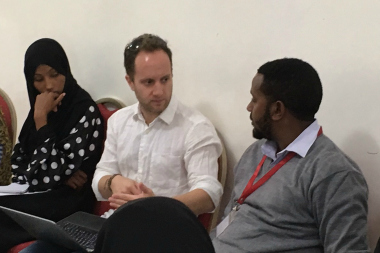
SI evaluated the Educate Girls End Poverty program, implemented by Relief International in Somalia from 2014-2017. The program is part of the Department for International Development (DfiD) Girls’ Education Challenge (GEC) to increase educational opportunities and school attendance. In Somalia, where the primary school attendance rate is only 23 percent, the program aimed to increase learning scores, enrollment, and attendance among marginalized girls.
SI’s evaluation demonstrated the positive impact of interventions such as sanitary kits, latrines, and solar lamps. Results for teacher training and some school-feeding programs were inconclusive. Interventions were shown to have the greatest impact among certain types of marginalized girls, in particular with rural and drought-affected populations.
Using the results of the evaluation, Relief International scaled up, revised, or discontinued some of its activities in order to increase its impact. They also garnered extra funding and directed it towards the activities that obtained the highest value for money. Nationally, the program began to allocate more resources to drought-affected girls, where the interventions were most successful and the need highest.
Team members: Andrew Carmona and Emily Gonzales
3rd Place: Reflect & Refocus: Improving Assistance to Vulnerable Migrants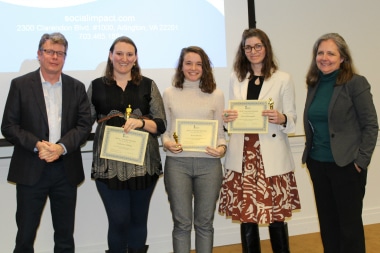
After a year-long, multi-country performance evaluation SI provided its US government client with insights that prompted them to alter their international migration assistance program. SI identified strengths and areas for improvement, captured best practices/lessons learned, and provided actionable recommendations to inform programming.
The team conducted key informant interviews, beneficiary interviews and an online survey as well as secondary data analysis of monitoring and performance data to inform the evaluation questions. Ultimately the team conducted nearly 300 interviews across six countries.
SI found that some interventions were having unintended and counter-productive consequences. SI’s evaluation and recommendations helped improve conditions for migrants and increase the long-term sustainability of the program.
Team Members: Erica Holzaepfel, Catherine Villada, Kate Seibold
Honorable Mentions to:
- Dereje Getahun and Zemenu Mintesnot, SI Ethiopia for GIS Helps – using GIS mapping to support USAID/Ethiopia’s resilience strategy
- Geetha Nagarajan, Alison Smith, Olga Rostapshova, Leslie Hodel, Andrew Epstein, Jennifer Mandel for Malawi CDCS Impact Evaluation – understanding the impact of integration

